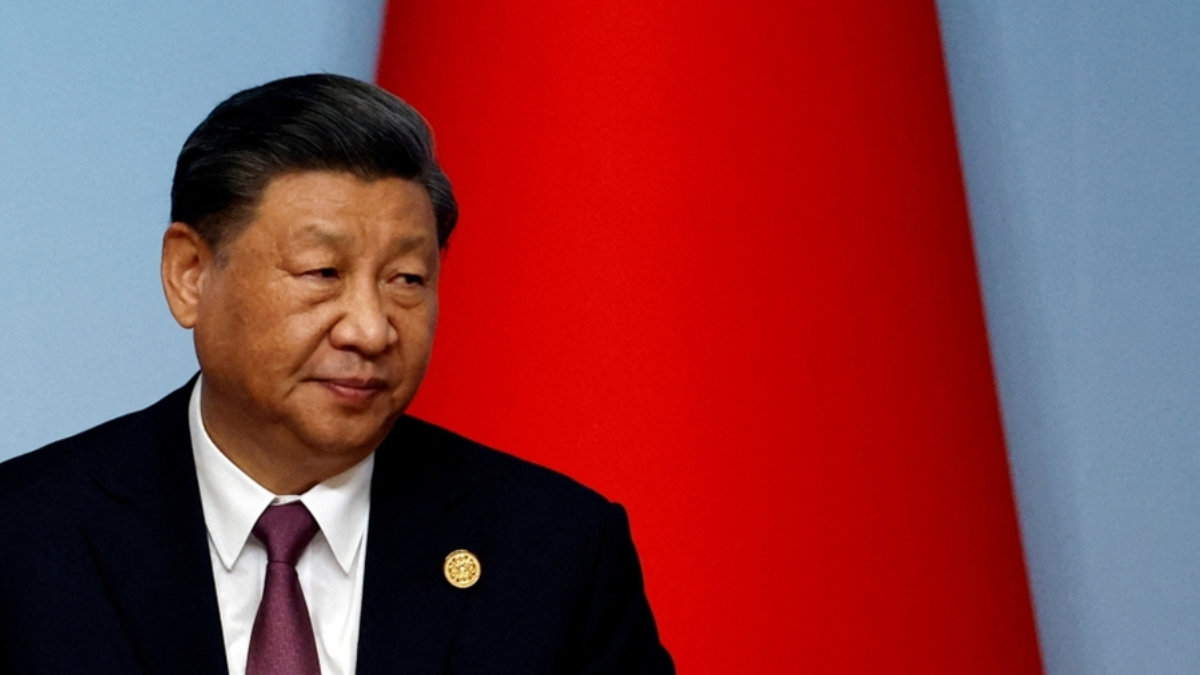
President Donald Trump dismissed China’s decision to restrict the number of American films imported into their country as insignificant during a news briefing. On April 10th, following new tariff increases from the United States, which hiked taxes on Chinese products up to 125%, the China Film Administration verified these limitations. As an immediate reaction, China increased its own levies on U.S.-made items to 84% and declared they would permit fewer Hollywood productions, attributing this action to what they termed "unfair U.S. trading behaviors" alongside falling domestic enthusiasm for American cinema.

In spite of political tensions, Hollywood continues to lead at China’s box office, where "The Minecraft Movie" debuted with an impressive $313 million, surpassing the popular Chinese film "Ne Zha 2." Nevertheless, significant doubt hangs over high-profile summer releases such as "Thunderbolts," "Mission: Impossible – The Final Reckoning," and "Superman," particularly regarding their performance in premium formats like IMAX.
A representative from IMAX stayed positive, emphasizing robust community connections and a varied selection of movies. They stated, "There shouldn't be significant effects."

How It Might Benefit China:
1. Uplift for the Local Movie Sector
By decreasing the presence of Hollywood movies in cinemas, China opens up greater opportunities for domestic productions to flourish. As fewer high-profile U.S. films compete with them, Chinese creators stand a better chance of achieving commercial success. Consequently, this may result in increased funding directed towards nurturing indigenous skills and narratives, thereby strengthening the country’s cinematic distinctiveness.
2. Cultural Preservation
Restricting the number of imported foreign films is another method for safeguarding and advancing Chinese culture and values. Since Hollywood movies frequently embody Western ideals, decreasing their prevalence allows China to guarantee that local audiences engage with material more consistent with the country’s cultural and political storyline.
3. Leveraging Strategy in Trade Conflicts
Employing movie imports as a diplomatic instrument allows China to respond to current trade disputes without directly assaulting key economic areas. This approach is both emblematic and effective—particularly because many Hollywood companies depend heavily on revenues from China’sBox Office contributions worldwide.
4. Promoting Regional and Global Film Industries
As American movies become less available, cinemas may opt for foreign non-Hollywood productions or local East Asian films to bridge these voids. Such a shift has the potential to enrich the variety of film experiences and expose Chinese viewers to an array of worldwide narratives outside the usual scope of U.S.-centered entertainment.

The Other Perspective: What China and Hollywood Have at Stake
1. Decreased Availability of Worldwide Films for Chinese Viewers
Major Hollywood productions introduce advanced film techniques, universal narratives, and cross-cultural dialogue. Limiting their availability might disappoint audiences who appreciate foreign works and seek insights into worldwide movies and popular culture movements.
2. Financial Damage to Hollywood Studios
China stands as one of the biggest players in the global film industry. With fewer movies being released there, American production companies stand to lose significant income, especially those relying heavily on blockbuster series which frequently depend on overseas ticket sales to achieve profitability. High-profile franchises such as Mission: Impossible or offerings from Marvel might experience a notable reduction in their worldwide profits.
3. Strained Industry Relationships
For many years, Hollywood has been forging alliances with China through various means such as joint productions and promotional tactics designed for Chinese viewers. However, this move might put these connections under pressure and deter potential cooperation in the future, thus impacting enduring business relations within the sector.
4. Ambiguity Regarding Upcoming Releases
Production companies setting their release timelines or considering IMAX releases now confront ambiguity. Major summer blockbusters might experience postponements, cancellations, or reductions in screening quality. Such instability can interfere with global promotional strategies, financial forecasts, and public excitement levels.
Ultimately, although China’s actions might boost its domestic film sector and bolster political narratives, they also come with potential hazards, particularly concerning their soft power, worldwide impact, and financial cooperation within the entertainment business.
Prachi Mehta